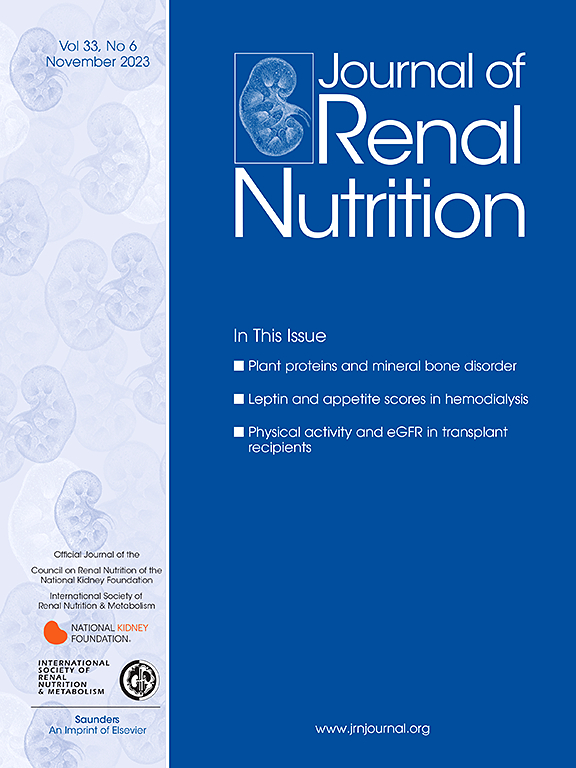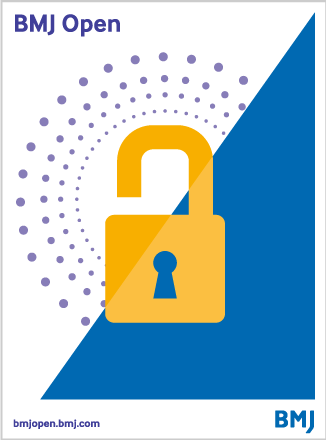Albuminuria
How to submit an article:
- Registered users can submit any published journal article that has a unique DOI (Digital Object Identifier) name or link to Research Hub.
- For example, you can paste the full DOI link:
https://doi.org/10.1109/5.771073or just the DOI name:10.1109/5.771073into the field above and click submit. - The person who is first to submit a valid article to Research Hub will forever be credited for it, and every article submission earns you +6 Research Points.
Published research studies are articles that present the findings of original research that has undergone a peer-review process and has been made publicly available in scholarly journals, books or other media.

Effect of Coffee Consumption on Renal Outcome: A Systematic Review and Meta-Analysis of Clinical Studies
2021 Jan Journal of Renal Nutrition Kanbay M, Siriopol D, Copur S, Tapoi L, Benchea L, Kuwabara M, et al.
Systematic Review Meta-Analysis Albuminuria Chronic Kidney DiseaseConsuming coffee is associated with lower risks of developing chronic kidney disease, reaching end-stage kidney disease, and having albuminuria.

Chinese herbal medicine for diabetic kidney disease: a systematic review and meta-analysis of randomised placebo-controlled trials
2019 Apr BMJ Open Zhang L, Yang L, Shergis J, Zhang L, Zhang AL, Guo X, et al.
Systematic Review Meta-Analysis Chronic Kidney Disease Diabetic Kidney DiseaseChinese herbal medicine may be effective and safe for treating diabetic kidney disease, although evidence quality varies.

Chinese herbal medicine for diabetic kidney disease: a systematic review and meta-analysis of randomised placebo-controlled trials
2019 Apr BMJ Open Zhang L, Yang L, Shergis J, Zhang L, Zhang AL, Guo X, et al.
The study concludes that CHM, when used as an adjunct to conventional treatments, shows greater reduction in albuminuria and improved glomerular filtration rate in DKD patients.
Systematic Review Meta-Analysis Albuminuria Type 2 Diabetes GFR Diabetic Kidney DiseaseResearch insights are moderated by the Research Hub team and offer an at-a-glance overview of interesting research findings.

2021 Journal of Renal Nutrition
Consuming coffee is associated with lower risks of developing chronic kidney disease, reaching end-stage kidney disease, and having albuminuria.
Systematic Review Chronic Kidney Disease
Effect of Coffee Consumption on Renal Outcome: A Systematic Review and Meta-Analysis of Clinical Studies
Kanbay M, Siriopol D, Copur S, Tapoi L, Benchea L, Kuwabara M, et al.

2019 BMJ Open
Chinese herbal medicine may be effective and safe for treating diabetic kidney disease, although evidence quality varies.
Systematic Review Chronic Kidney Disease Diabetic Kidney Disease
Chinese herbal medicine for diabetic kidney disease: a systematic review and meta-analysis of randomised placebo-controlled trials
Zhang L, Yang L, Shergis J, Zhang L, Zhang AL, Guo X, et al.
Review Articles
Review articles summarise and critically evaluate the current state of research on a specific topic or field by synthesising multiple primary research studies.

Effect of Coffee Consumption on Renal Outcome: A Systematic Review and Meta-Analysis of Clinical Studies
2021 Jan Journal of Renal Nutrition Kanbay M, Siriopol D, Copur S, Tapoi L, Benchea L, Kuwabara M, et al.
Systematic Review Meta-Analysis Albuminuria Chronic Kidney DiseaseConsuming coffee is associated with lower risks of developing chronic kidney disease, reaching end-stage kidney disease, and having albuminuria.

Chinese herbal medicine for diabetic kidney disease: a systematic review and meta-analysis of randomised placebo-controlled trials
2019 Apr BMJ Open Zhang L, Yang L, Shergis J, Zhang L, Zhang AL, Guo X, et al.
Systematic Review Meta-Analysis Chronic Kidney Disease Diabetic Kidney DiseaseChinese herbal medicine may be effective and safe for treating diabetic kidney disease, although evidence quality varies.

Chinese herbal medicine for diabetic kidney disease: a systematic review and meta-analysis of randomised placebo-controlled trials
2019 Apr BMJ Open Zhang L, Yang L, Shergis J, Zhang L, Zhang AL, Guo X, et al.
The study concludes that CHM, when used as an adjunct to conventional treatments, shows greater reduction in albuminuria and improved glomerular filtration rate in DKD patients.
Systematic Review Meta-Analysis Albuminuria Type 2 Diabetes GFR Diabetic Kidney DiseaseClinical Trials
Clinical trials are research studies that involve people and are conducted to evaluate the safety and efficacy of new treatments or interventions, such as drugs, medical devices, or behavioural therapies.
Study Protocols
Published study protocols are detailed plans that outline the objectives, methodology, statistical analyses, and organisation of a research study that have been made publicly available for others to review and use as a reference.
Presentation Slides

Systematic Review
Consuming coffee is associated with lower risks of developing chronic kidney disease, reaching end-stage kidney disease, and having albuminuria.
Kanbay M, Siriopol D, Copur S, Tapoi L, Benchea L, Kuwabara M, Rossignol P, Ortiz A, Covic A, Afsar B

Systematic Review
Chinese herbal medicine may be effective and safe for treating diabetic kidney disease, although evidence quality varies.
Zhang L, Yang L, Shergis J, Zhang L, Zhang AL, Guo X, Qin X, Johnson D, Liu X, Lu C, Xue CC, Mao W
Executive Summary
Write an executive summary in the form of a blog article on the topic of "Research into Chinese medicine treatment for Albuminuria" summarising the research below and using language that can be easily understood by patients and avoiding medical jargon using a professional and caring tone of voice.
Write an executive summary in the form of a blog article on the topic of "Researched Chinese medicine treatments for Albuminuria" summarising the research below in an objective and easy to understand way, and using language that can be easily understood by patients. Group the article into Chinese medicine treatments first, followed by nutrition and other treatments. Avoid using medical jargon and use a professional and caring tone of voice.
Write me a concise but easy to understand executive summary on the topic of "Chinese medicine treatments for Albuminuria" based on the following research that I will give you. Your summary should be 2 paragraphs long in Australian English spelling and include references to the studies.
A Systematic Review published in 2021 in the journal Journal of Renal Nutrition found that Consuming coffee is associated with lower risks of developing chronic kidney disease, reaching end-stage kidney disease, and having albuminuria. In this systematic review and meta-analysis, researchers conducted a comprehensive literature search through various databases, including PubMed/Medline, Web of Science, Embase by Elsevier, and the Cochrane Central Register of Controlled Trials by Wiley from 1960 until February 2020. Outcomes related to chronic kidney disease incidence, its progression, and mortality associated with this disease were evaluated and correlated with coffee consumption and the amount consumed. Quality assessment of the included studies was done using the Newcastle-Ottawa scale. The analysis incorporated 12 studies, with a mix of prospective and cross-sectional studies, and a total of 505,841 subjects. Seven of these studies focused on the relationship between coffee consumption and the onset of chronic kidney disease. The finding was that consuming coffee was significantly correlated with a decrease in the risk for this disease, especially for individuals who took more than 2 cups of coffee per day. Furthermore, there was also a noteworthy lower risk of reaching end-stage kidney disease for coffee drinkers, as well as a decrease in the risk of albuminuria (a kidney disease marker). Finally, the risk of death related to chronic kidney disease was discovered to be lower in coffee consumers.
A Systematic Review published in 2019 in the journal BMJ Open found that Chinese herbal medicine may be effective and safe for treating diabetic kidney disease, although evidence quality varies. The systematic review and meta-analysis comprised randomized controlled trials comparing the use of oral Chinese herbal medicine (CHM) to a placebo, involving a comprehensive search strategy and selecting from over 7000 articles, resulting in 20 studies with a total of 2719 participants. Potential bias was minimized by only including studies that pitted CHM against a placebo. In addition, an a priori subgroups analysis was conducted to identify potential candidate formulae and frequently used herbs for further exploration. Despite these measures, the overall evidence ranged from moderate to very low quality due to unclear randomization procedures, substantial variations in outcome measures, and reduced external validity. The latter was affected by factors such as multi-ingredient herbal formulae, brief follow-up periods, limited numbers of clinical events, and the inclusion of older patients with less advanced disease.
Moderation Tools
Topic
Sign In
Users not signed in are limited to viewing the 5 most recent items of content.